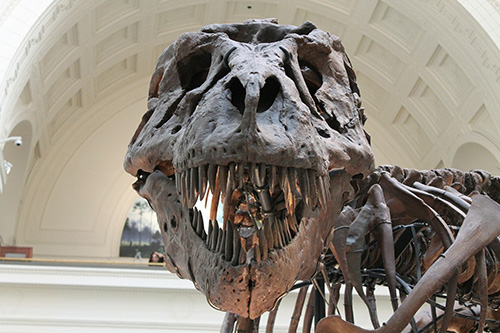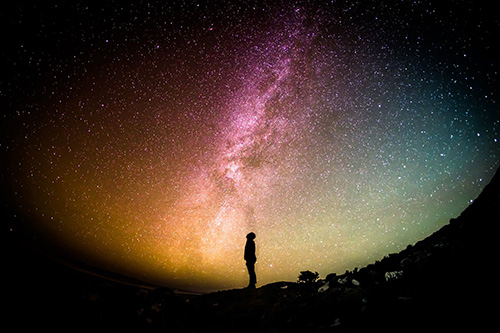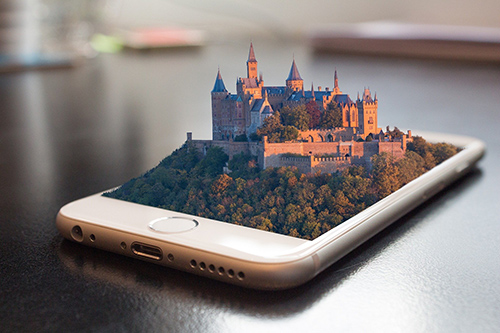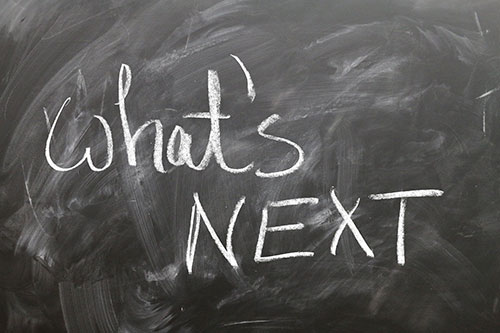
We partner with trusted companies that offer products which help our readers achieve their goals! If you purchase through our partner links, we get paid for the referral at no additional cost to you! Read our disclosure for more info.
Did you follow your childhood dreams? It’s okay if you didn’t. But if that’s the case, I want you to reflect on a few key questions that affect your happiness.
First up: are dreams real? You bet they are. But what are dreams made of, and how are they defined? Let’s take a look at dreams meaning:
A dream is a succession of images, ideas, emotions, and sensations that usually occur involuntarily in the mind during certain stages of sleep.
That paints a pretty clear picture. I usually don’t remember my dreams vividly, especially if I had dreams within dreams. Those can be mind blowing—like the movie Inception, with Leonardo DiCaprio.
However, for the duration of this article, we’ll define dreams as deeply rooted, strong desires that affect your ambition, perseverance, and mental health.
The purpose of this guide is to help you gauge your satisfaction in life, based on your early childhood dreams. I hope that by the end you have an idea of what those dreams were, and if they have contributed to your current level of satisfaction in life.
Let’s dive into it.
Passion Begins At Childhood
As you may know, life can sometimes get in the way of fulfilling our wishes.
It can obscure the lens on how we find our deepest passions, and often times, can make us wonder if we even have a purpose. My new years resolutions always revolve around pursuing my purpose in life.
I’d like to ask you two important questions:
- What is your greatest passion in life?
- And at what age did you realize it?
Think back to when you were a kid—around the ages of 5-11 years old. What was it that really turned your gears? In other words, what kinds of things did you do that others would define you by?
People might say something like, “You loved to play with your little astronaut toys when you were a kid. It’s all you talked about!”
Or maybe you were obsessed with digging in the sandbox. And if you did dig in the sandbox, does your current career have anything to do with studying planet Earth?
Whatever that thing is that was special to you, is it in some way involved in your life right now? It doesn’t even have to be involved with your career. It could be a hobby of yours.
Let’s do a conscious dreams analysis to figure it out. Answer these questions:
- What did you love doing as a kid?
- If that special thing isn’t currently in your life, are you happy?
- If it is, would you consider yourself successful and content in your current phase of life?
Let me know in the comments section below, because I’d love to hear your story!
Now that you have some idea of your childhood desire, let’s continue onward. If you don’t have any idea, my advice is to think harder. Your desire doesn’t have to be physical. It can be mental as well.
In fact, you likely have one of each. There are actually four types of desires:
- Physical desires, called hunger or thirst.
- Intellectual desires, called curiosity.
- Sexual desires, called lust.
- Economic desires, called consumer demand.
To get a grasp on what your greatest mental desire would have been, reflect on this:
“What did I want to be when I grew up?”
For instance, when I was a kid, I used to be obsessed with space, aliens, and the ‘what-ifs’ of the Universe. I still am, actually. In fact, I really enjoy keeping up with Dr. Michio Kaku—a renowned theoretical physicist, and other scientists of our era.
These types of deep-thought provoking subjects really gave me purpose as a kid, and I always thought it would be my calling to figure something out. Anything that would unlock the deep answers of who we are, and where we are going.
I didn’t end up becoming a physicist (although it was one of my college majors). But I do find myself pondering on those topics frequently. I even write about them, and have tons of old journals where I would doodle different equations and whatnot.
(Doodling is an excellent way to strengthen your ability to focus with unyielding intensity.)
My point is, I can’t imagine my life existing without giving significant thought to these ideas. I crave them on a such a deep level, that the source of the yearn seems a bit unfathomable.
So, yes, I still consider my greatest childhood desire a part of my life. And I would rate my happiness pretty high up on the scale. Although, happiness and satisfaction aren’t quite the same things.
I am generally happy, but I find myself always being one step short of satisfied.
This is a good thing though. It’s part of human nature.
Because when we reach a certain peak of satisfaction and comfort, our drive goes down and we innovate less. Imagine if we found all the answers? We’d have nothing left to think about.
It’s healthy to always seek more ways to fulfill our purpose in life. Doing it helps to advance ourselves—individually, to become leaders, and it pushes our species forward to new civilizations.
Now is the time to Follow your childhood dreams
If you haven’t done this yet, then you need to first figure out what your biggest desires were as a kid. Don’t wait a year from now, or even a month.
Figure it out now. There’s no time to spare.
If you keep procrastinating, then you might let your dreams pass by. You might even be in the wrong career without realizing it, because you never came to terms or acted on fulfilling your dreams.
As The Jobnetwork puts it, our lives and careers are inseparably connected. This is so true. The success of our career and personal life deeply depend on each other.
I recently came to terms with what my childhood dreams were. I spent some serious time introspecting to understand where my perseverance in life was coming from.
It was about three years ago, when I first put together the correlation between the pursuit of childhood dreams and happiness in later life.
I’ve been tying the strings ever since to help me write this article.
So, here we are. And I want to ask you again:
Are you currently following your childhood dreams?
If not, it’s time to stop flirting on the edge of your happiness, barely getting by emotionally while your dreams sit on the sideline. Ask yourself:
“Am I living my best life possible?”
If you aren’t, then it’s time you kick your organization into overdrive and make room for change. There’s no telling who you will end up being in the future if you don’t act on the burning desires this life has chosen you for.
Imagine if Bill Gates had never invented Microsoft? Can you fathom how different our world would be without the household computer? Well, we already know this—it’d be like life in the 1970s and earlier.
We’d be living in a totally different world.
Now, instead of imaging how different our world would be, imagine how Bill Gates would FEEL if he got old and never ‘figured it out’. He would be left with a sad, burning hole in his chest, knowing he was put here for something great, and that he just couldn’t figure out why.
Thankfully for us, he figured it out. Just as all others did who have progressed our civilization.
Now it’s your turn. The world needs you.
You have to tap into your innate superpower abilities and bring us to new horizons. Do it for us, but more importantly, do it because it’s the reason you were born.
You were born for something great, and I hope you realize this sooner than later. The very core of your happiness depends on it. Don’t let your irrational fears of failing—or whatever reason you may have, prevent you from fulfilling your purpose.
Conclusion
When you include your childhood passion into your life, you include your deepest desires, which ultimately affect your happiness. I hope you have realized what your biggest passion in life was as a kid. And I hope that your passion is still involved in your life in some way.
Go now, and act upon your dreams. This is how dreams are made. There’s no time to wait.
The best of luck to you, my friends.
Here’s a quick recap of Should you follow your childhood dreams:
- What defined you as a kid?
- Is your childhood dream a part of your life now?
- How would you rate your current happiness and contentment in life?
- Act now on your deepest desires, our world depends on it.
That’s all folks! Thanks for reading.
Feel free to comment below if you liked this article on should you follow your childhood dreams? I’d love to take questions or suggestions on other content you’d like to see on eHowdy!
Share Post ❤️
Aaron McCloud


Most Popular

Is Sleeping 6 Hours Enough? (5 Reasons It’s Not)

10 Brain Foods That Boost Your Mood and Mental Clarity

7 Obvious Signs You Talk Too Much, and How To Stop








